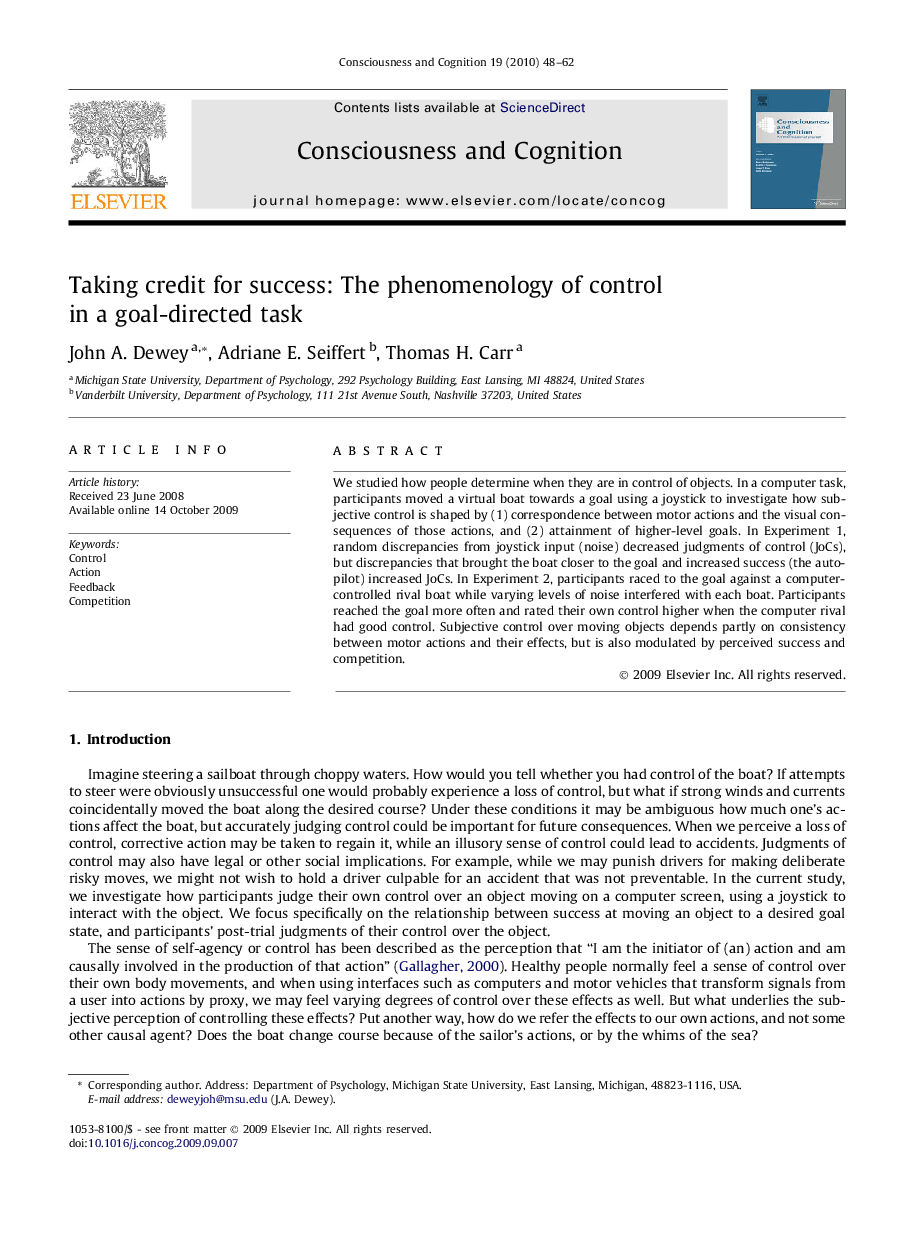| Article ID | Journal | Published Year | Pages | File Type |
|---|---|---|---|---|
| 10458759 | Consciousness and Cognition | 2010 | 15 Pages |
Abstract
We studied how people determine when they are in control of objects. In a computer task, participants moved a virtual boat towards a goal using a joystick to investigate how subjective control is shaped by (1) correspondence between motor actions and the visual consequences of those actions, and (2) attainment of higher-level goals. In Experiment 1, random discrepancies from joystick input (noise) decreased judgments of control (JoCs), but discrepancies that brought the boat closer to the goal and increased success (the autopilot) increased JoCs. In Experiment 2, participants raced to the goal against a computer-controlled rival boat while varying levels of noise interfered with each boat. Participants reached the goal more often and rated their own control higher when the computer rival had good control. Subjective control over moving objects depends partly on consistency between motor actions and their effects, but is also modulated by perceived success and competition.
Keywords
Related Topics
Life Sciences
Neuroscience
Cognitive Neuroscience
Authors
John A. Dewey, Adriane E. Seiffert, Thomas H. Carr,
